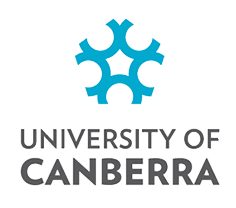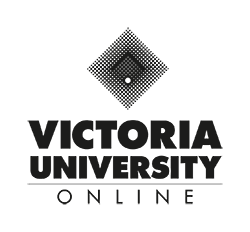Browse Masters Results
Master of Counselling
Whether helping others cope with crisis, put challenges into perspective or find a life worth living, guide the way and practise respectful and inclusive counselling. The Master of Counselling consists of research-led content that is delivered via supp...

Master of Financial Planning
Trusted financial planners are essential to advise and support us, to navigate the good times – and the bad – and ensure that our hard-earned money works even harder for us. Our Master of Financial Planning is designed for students who want to commence...

Master of Public Health
The demand for public health professionals is significant and expected to grow. According to Job Outlook, there’s been a 22% growth in public health and disease prevention related job postings compared to last year, with this trend expected to continue...

Master of Counselling
In a noisy world that is complex, uncertain and constantly changing, it’s more important than ever that there are people who can listen. The number of full-time counsellors continues to grow, and counselling skills are becoming increasingly relevant in...

Master of Mental Health
The negative effects of mental ill-health can be debilitating for individuals, and devastating for families and communities. We need professionals in mental health to deliver the leadership, care and support that will change—and save—lives. VU Online’s...

Master of Business Administration (Digital Transformation)
The MBA (Digital Transformation) is designed for professionals and business leaders who aim to drive and manage change in the digital age. This program equips students with the strategic, technological, and leadership skills necessary to navigate the c...

Master of Information Technology (Cyber Security) (VIC, NSW, QLD & WA Only)
Launch your career in one of the world’s most critical and fast-growing fields. The Master of Information Technology (MIT) with a Specialisation in Cyber Security is designed to equip graduates with the skills and confidence to thrive in today’s digita...

What is a Master’s Degree?
A Master’s degree is a postgraduate qualification that provides in-depth knowledge and practical skills in a specific discipline. Building on a Bachelor’s degree, it combines advanced coursework, research opportunities, and professional practice to prepare graduates for leadership roles, further study, or specialised careers.
With pathways into postgraduate coursework, research degrees, and professional practice, a Master’s degree equips students for roles across industries like public health, social work, and information technology.
Why study a Master’s Degree?
- Career growth: Qualify for senior and leadership roles in fields like social sciences, engineering, or business administration.
- Specialisation: Focus on a field of study through research-intensive or coursework-based programs, including the Master of Science, Master of Laws, or Master of Education.
- Employability: Enhance your skill set and unlock higher earning potential with qualifications recognised globally.
- Flexibility: Choose from full-time study, part-time study, or online learning to balance work and education.
Who is a Master’s Degree suited to?
Master’s programs are ideal for:
- Bachelor’s degree graduates ready to specialise or transition into advanced careers.
- International students seeking CRICOS-approved qualifications.
- Domestic students exploring pathways into postgraduate study or research degrees.
- Professionals looking to upskill and enhance their career prospects in public health, social work, or information technology.
Benefits of studying a Master’s Degree
- Global recognition: Qualifications from Australian universities are highly respected worldwide.
- Pathways to further study: Transition seamlessly into a Doctor of Philosophy (PhD) or other research projects.
- Practical skills: Gain hands-on experience through professional practice, research, and applied learning.
- Supportive environment: Benefit from student support, career services, and access to advanced facilities.
Flexible study options
- Postgraduate coursework: Focus on structured learning with electives tailored to your career goals.
- Research degrees: Engage in a research project to deepen your expertise in a specific topic.
- Online learning: Study remotely with flexible schedules and access to virtual resources.
- On-campus learning: Immerse yourself in a collaborative, hands-on environment at leading Australian universities.
- Blended learning: Combine online convenience with face-to-face interaction for a balanced experience.
Entry requirements and eligibility
Most Master’s programs require:
- Completion of a Bachelor’s Degree or equivalent qualification.
- Meeting entry requirements, such as prior work experience or academic prerequisites.
- English language proficiency for international students.
- Additional criteria depending on the program, such as professional practice or prior learning.
Popular Master’s Degrees
- Master of Business Administration (MBA): Ideal for those seeking leadership roles in business and management.
- Master of Science: Focus on advanced scientific knowledge and applications.
- Master of Education: Prepare for senior roles in teaching, training, and education policy.
- Master of Engineering: Specialise in fields like civil, mechanical, or electrical engineering.
- Master of Social Work: Train for impactful careers in community and social services.
A Master’s Degree is more than a qualification—it’s an investment in your future. Whether you’re pursuing a Master of Science, a Master of Laws, or an MBA, you’ll gain the skills and knowledge needed to excel in your chosen field.
